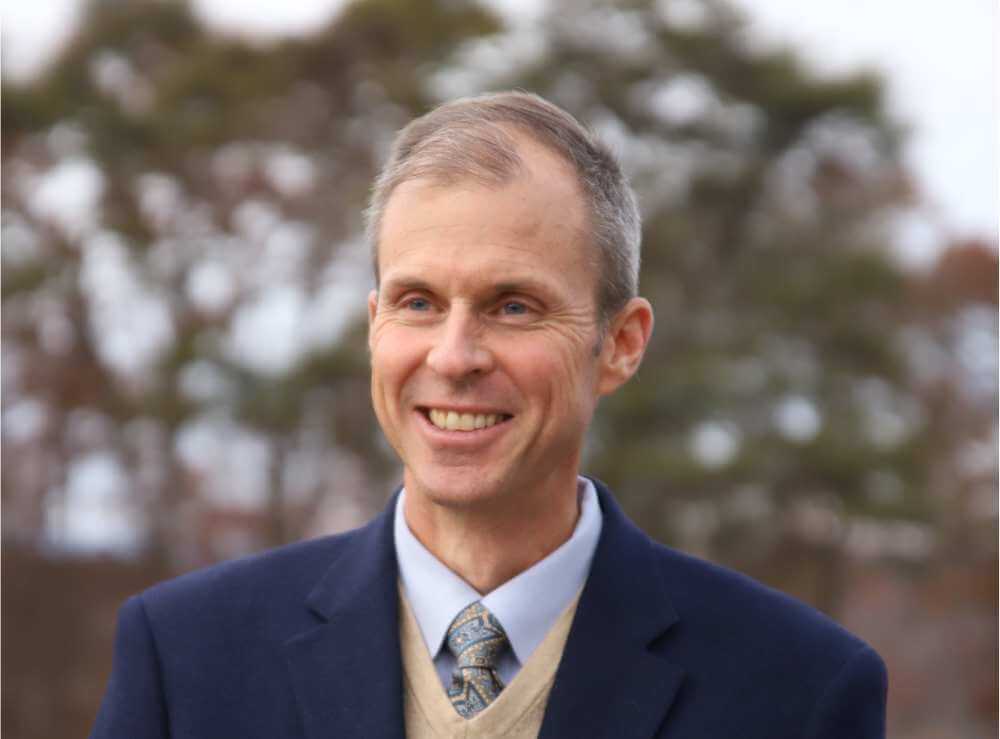This post was last updated on September 5th, 2024 at 06:58 am
Is it more economical to split firewood by hand or use a machine to do the job? Many people would argue the latter, citing factors related to time and money. But I like how John Cuddeback, who is a philosopher, approached this question. As he considered his own experience, he recognized the enjoyment he received from splitting firewood by hand was important. This “chore” also provided exercise and allowed for socialization with fellow log splitters. These less tangible benefits tipped the scales for Cuddeback in favor of manual labor.
Here’s how Cuddeback frames the issue in a 2021 essay: “Work, especially manual labor (manual of course originally means by hand), has an importance in itself. Our society seems to have accepted with little or no consideration the premise that manual labor should be avoided if possible. I suggest that manual labor, as a particularly human form of work, has a special and enduring value in human life. This is especially evidenced in its power to unite the one working with other persons, places, and things.” Cuddeback’s point is not that splitting wood by hand is for everyone (heck, our family doesn’t have a fireplace). Rather, he challenges us to consider that some forms of manual labor are actually worth embracing.
Embracing seemingly mundane tasks, or the “lower things,” can help us realize the “higher” and more spiritual things in life, according to Cuddeback. Philosophy is the foundation of his website, LifeCraft, which focuses on how we can run our households to lead more fulfilling lives. To be clear, LifeCraft isn’t the place to go for advice on shopping at IKEA or tips for saving money at Disney World. LifeCraft challenges its readers to seek out life’s deeper meanings.
In terms of splitting wood by hand, the deeper meaning can be found in the act itself. It is a “full-body experience.” “The rhythmic smack is followed by a pungent scent determined by species and age of the wood. A few rounds slowly grow into a pile of triangular pieces that stands as a solid monument to the work you have just done. You cannot help but look upon that pile, and then look back again, having a feeling of personal accomplishment,” Cuddeback writes.
If splitting wood by hand isn’t an option for you, rest assure that our daily routines offer many ways to experience similar feelings of personal accomplishment. But don’t wait for these experiences to find you. If we simply “go with the flow,” Cuddeback cautions us, we’re likely to fall into the trap of adopting mainstream cultural values. Rather, we must be intentional and pursue those tasks that can help steer us toward the “higher things” of life.
American culture today discourages us from taking seriously big-picture questions, some of which Cuddeback raised during my recent interview with him: “What is life ultimately about? What ultimately are we trying to achieve? And what does that mean, in a very concrete way, for how we live our day-to-day life?”
Part of my interview with Cuddeback examined the intersection of physical activity and spirituality. As regular Frugalmatic readers know, I’ve often discussed the practical benefits of a physically active life. Cuddeback touches on many of the same themes that you’ll find at Frugalmatic, but with a more philosophical bent.
Included below are excerpts from my interview with John Cuddeback. His responses below are mostly verbatim, though I’ve edited some parts for clarity and length.
Frugalmatic: In your piece on ‘The Economics of Splitting Wood by Hand,’ you make the case that manual labor can be beneficial, under the right circumstances. What are the right circumstances for embracing manual labor, especially in a world that prizes convenience?
John Cuddeback: This is a challenging thing. Manual labor is not an end in itself. It’s not the great human good. Nonetheless, a principle that I will refer to throughout our conversation is that the most important things, properly understood, give importance to the less important things. This is a great insight of the ancients.
When you prioritize the higher things, then not only do you get the higher things, you get the lower things, too. When everything is in its place, when everything is in its right order, then we flourish.
Aristotle said the hand is the ‘tool of tools.’ We know biologically the hand especially sets us apart from lower animals. Philosophically, you can say the hand is closely related to human reason. Human reason is what most separates us from the lower animals. The hand is a tool, as it were, that is well suited to express reason, to be the tool of rationality, which of course is the human difference.
Working with our hands is especially important today because it is a very embodied experience, and we live in an increasingly disembodied age. There’s something very salutary, something very important, even necessary about prioritizing embodied experiences. As Wendell Berry would say, we need to reconnect with our body. And I think manual labor is a wonderful way to ‘reconnect with our body’ and experience ourselves as the embodied preachers God has designed us to be.
F: How does your philosophy on life and your Catholic faith help form your attitudes toward technology?
JC: The faith is very much a matter of ‘seek first the kingdom of God.’ Prioritize the higher things. Prioritize the spiritual things. To properly prioritize spiritual things, the faith, growing in virtue, and the intellectual life, we must give their place to the bodily things.
My choice to prioritize manual labor in my home is very much the fruit of a spiritual intention. Now more than ever we need to be clear on ultimate ends, on our intentions, our intentionality. Intentionality means setting something as an end and then ordering other things to it. More than ever we need to be intentional. Because if we’re not intentional, we tend to go along with the customs, the habits, the priorities of a very disordered culture.
In a more healthy culture, you can go along with the culture and even be formed by it, and this is good. In ours, we are going to have to be more intentional, more selective, much more reflective and ask ourselves those hard questions like, ‘If I’m going to prioritize my faith, prioritize growing in my Christian vocation, what concretely does that mean on a day-to-day level?’
My basic approach is that by a natural plan, a natural design, a healthy home life is a very embodied, concrete daily thing of working with God’s creation.

F: For some people, when it comes to technology, it’s hard to draw lines in terms of what sort of technology would support their faith and outlook on life and what would detract from that. I mean, we’re doing this (interview) over Zoom. That helps us achieve our ends. That’s where it gets into trying to sort out what to keep in your life and what to strip out.
JC: Amen. I just affirm that by saying that is why we have to be especially reflective and intentional today, unlike ever before, because the basic patterns of our society are rooted in the wrong principles, in ways that are very hard to recognize.
The disorder of our society goes deeper, reaches farther, into the concrete practicalities of our life than we realize. There’s an essay by Andrew Lytle, who’s a southern agrarian, and he’s writing in the 1930s and talking about the advance of technology: “We now need to choose to defend the ordinary functions of human living.” I take this as kind of a very practical directive. The ordinary functions of human living are being taken away from us: working in the garden, making things with our hands, sitting on the porch, reading aloud together, singing together.
Many forms of work and leisure that you can say are the ordinary functions of human life have been largely undermined and removed, and often that’s by technologies that we’re not even realizing are doing that to us.
Read: Are you using healthy tech? 5 questions to ask
F: I listened to one of your podcasts about homesteading, and you seem to make the case that anyone can do homesteading at a certain level, that it doesn’t have to be an intimidating thing. If people want to start living more frugally and self-sufficiently, where would be a good place for them to start, in your opinion?
JC: I have the approach of one step at a time. Choose one or two things. Choose one or two rich kinds of work to do at the home, even if you’re a household of one. Most people are not a household of one. Choose a work that can be done together.
It can be, as Wendell Berry says, a context for shared life. It can be any number of things, but be intentional. Reflect on what fits, what is practical for your situation in life, your particular place where you live, your bodily disposition and ability, your profession. Taking into account your particular circumstances, choose one or two of the arts of husbandry or wifery and start to work on them. That’s my main suggestion.
I always love to say some form of gardening is the most obvious, natural place to begin. That doesn’t mean it has to be the case for everybody, but I’d say it fits for everybody to begin by asking, ‘Should gardening be the first thing that I focus on?’ There is something so profoundly natural in how it engages our body and draws us immediately in a caring and stewardly relationship with natural things, which by God’s design is very salutary for us.
Otherwise, I would offer a couple principles: Have it be simple. Ideally, have it work with some type of natural materials. Have it engage the hands in a meaningful way. Have an emphasis on beauty.
All of the arts of husbandry and wifery (though not simply about beauty the way the fine arts are) are intrinsically about beauty. Real craftsmen always make something beautiful, even if it’s the most practical of things. Have a sense of beauty along with practicality. Any way we can craft something beautiful with our hands is a great place to begin.
John A. Cuddeback, PhD, is professor of Philosophy at Christendom College, where he has taught for more than 25 years. He lectures widely on topics including virtue, fatherhood, friendship, and household, and his professional writings appear in various academic journals and books. His book, “True Friendship,” was republished by Ignatius Press. His podcasts, blogging, and free courses at LifeCraft are renowned for applying an ancient wisdom to life in the home today.

